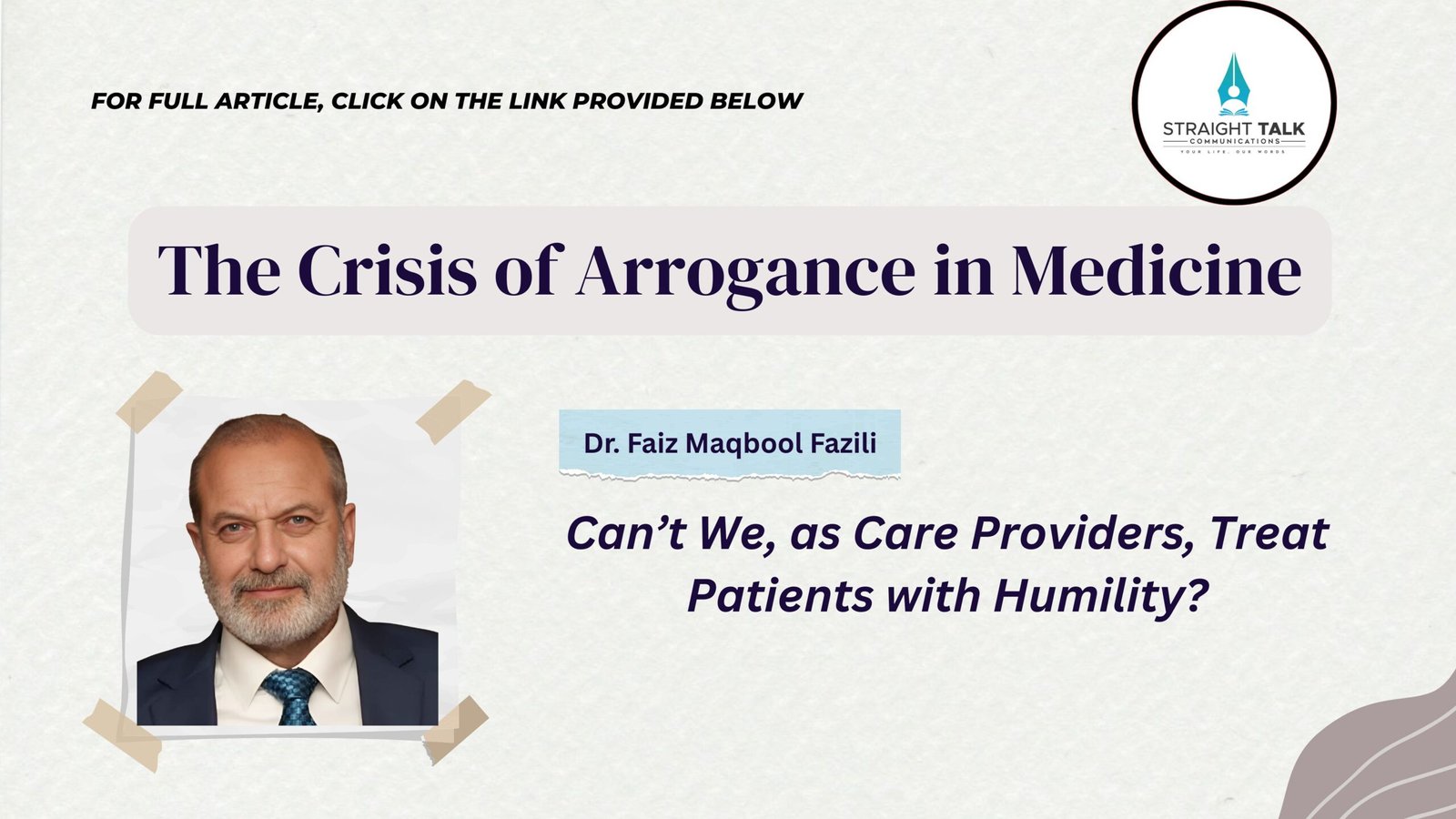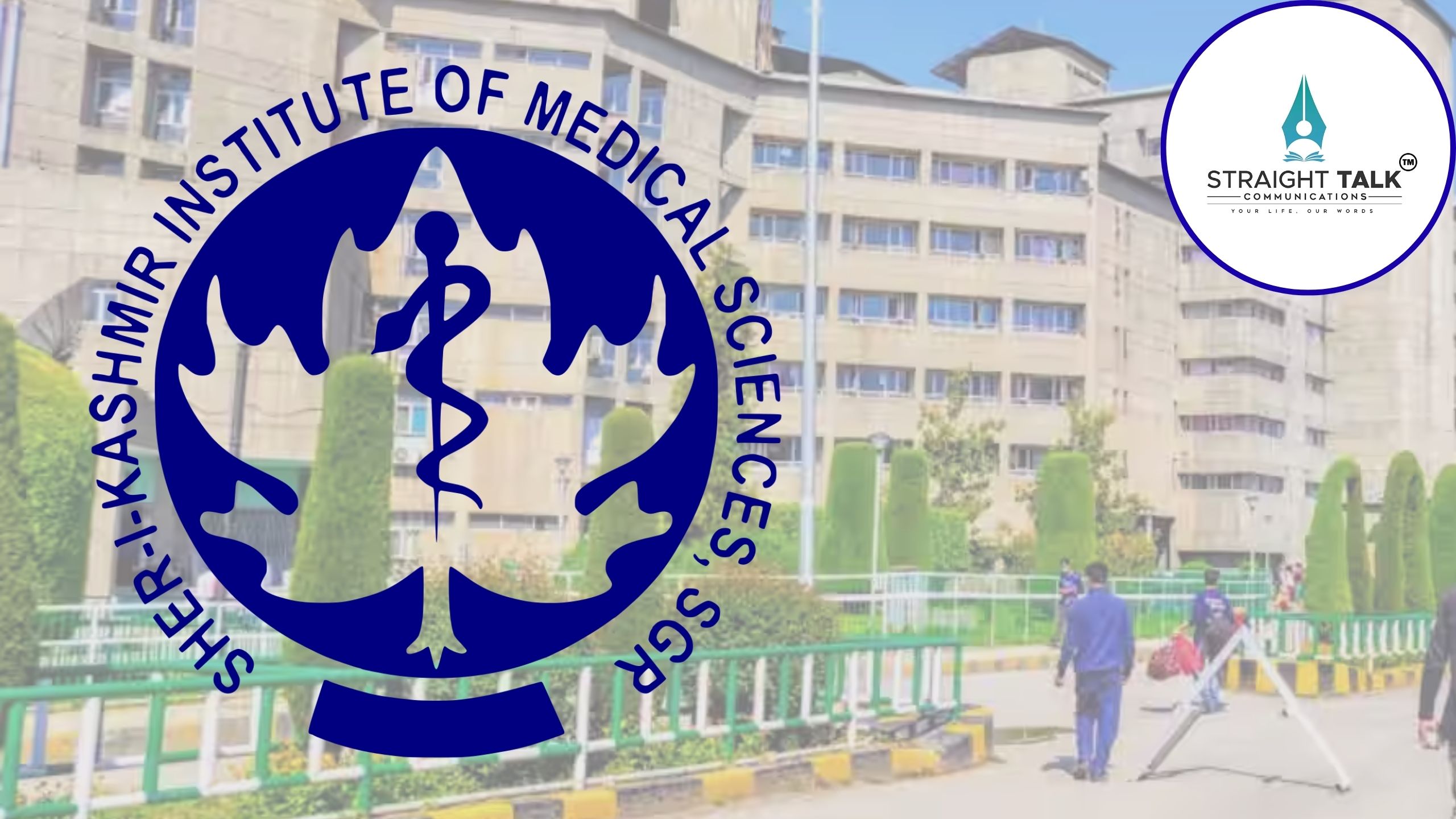The Crisis of Arrogance in Medicine

Can’t We, as Care Providers, Treat Patients with Humility?
Dr. Faiz Maqbool Fazili
A young dental student(Zahida (name changed), suffering from persistent discharge at an old fracture site, visited an orthopedic surgeon suspecting osteomyelitis. Instead of listening to her concerns, the doctor snapped, *“You’re a dentist, don’t teach me!” Dismissed and disheartened, she travelled to Delhi, where she was diagnosed and treated for—osteomyelitis. .This is not an isolated incident. Across hospitals, frequently patients complain Doctors don’t listen, they don’t answer all questions. They don’t explain treatment plans. Their body language exudes arrogance, not empathy. They don’t respond to phone calls though they say they are available24x7
Worse, some physicians—without any significant research, national recognition, certification, awards or even crossing the Banihal Pass—call themselves “internationally renowned.” If medicine is a “noble l profession, why does “haughtiness” overshadow humility?
I. The Essence of Medical Practice: Healing, Not Authority-Medicine is Built on Trust, Not Ego. “Hippocrates’ Oath l begins with “First, do no harm”—not “First, assert dominance.” Patients come in pain, fear, concerns and vulnerability. A doctor’s role is to heal, not belittle. Studies show 70% of misdiagnoses occur due to poor communication (BMJ, 2016).
The Fallacy of the “God Complex”;- Some doctors behave like demigods, forgetting they are human first, healers second. A surgeon mocking a patient’s self-researched concerns is not confidence—it’s incompetence masked by arrogance. True expertise lies in admitting uncertainty, not pretending omniscience.
II. Why Arrogance in Medicine is Dangerous? Patient Outcomes Suffer- A Harvard study found that patients of empathetic doctors recover faster, adhere better to treatment, and report higher satisfaction. Conversely, dismissive(non-communicative) doctors increase patient anxiety, leading to non-compliance and worse health outcomes.
The Rise of “Doctor Shopping” — Patients, tired of being ignored or ridiculed, hop between doctors, delaying critical treatment. In India, 60% of patients withhold information fearing judgment (Indian Journal of Medical Ethics).
Legal & Ethical Consequences; Medical negligence cases often stem from doctors not listening rather than lack of skill. The MCI Code of Ethics mandates “courtesy, respect, and dignity”—yet violations go unchecked.
III. The Traits Every Doctor Must Cultivate. Active Listening: The Cornerstone of Care. A patient’s history gives 80% of the diagnosis (Osler’s Principle). Interrupting patients within 11 seconds (per JAMA study) leads to misdiagnosis. Explaining, Not Dictating. A 5-minute conversation on treatment options improves compliance by 40%. Using jargon-free language ensures patients understand and trust their care plan.
Humility: Accepting Limits & Learning. No doctor knows everything. Referring a patient or saying “I’ll research this” is strength, not weakness. – The best doctors remain eternal students.
IV. How Can We Fix This? Medical Education Curriculum Reform. Ethics, empathy training on communication skills should be mandatory inclusion in curriculum, not optional. Patient feedback must influence promotions and postings.
Accountability for Rude Behaviour. Hospitals should have *grievance cells for doctors’ misconduct. MCI & NMCmust enforce compassionate care standards. Cultural Shift: From “Doctor as Authority” to “Doctor as Partner”. Patients are not “cases”—they are needy and desperate people seeking help. A doctor’s true greatness lies not in arrogance, but in kindness and humility.
Medicine Needs a Heart, Not Just a Brain; A profession that demands sacrifice must *reward humility. The orthopaedic surgeon who mocked the dental student failed not just her—but the very oath he swore. Patients remember not just the cure, but how they were treated. If doctors cannot listen, empathise, and respect, they should not have opted for Medicine to be doctors.
Final Call to Action: Doctors don’t cure It is Allah Who cures, doctors only facilitate management sometimes, treat often, comfort always. Patients: Demand respect—you deserve it. System: Reward compassion, not just credentials. Because in the end, medicine is not about pride—it’s about people.
(The author is a practicing surgeon, Clinical auditor, Healthcare policy analyst advocates patient and family rights)







